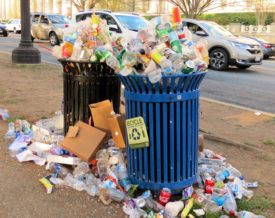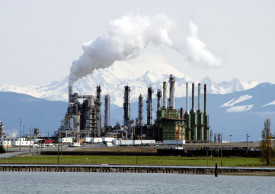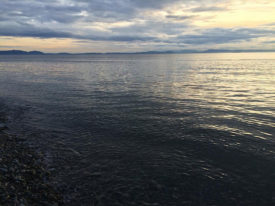March 2007 update! Washington is considering certification for state lands.
The gist:
One of the best solutions for the Northwest to safeguard its distinctive natural heritage is to adopt FSC certification.
The details:
The health of the Northwest’s forests is an indication of how well northwesterners are safeguarding their distinctive natural heritage. Since 1971, more than 24 percent of forests in the five areas monitored by the Cascadia Scorecard’s forest indicator have been clearcut. The good news is that logging rates dropped in the 1990s.
A decisive step toward better management would be for Northwest landowners to seek Forest Stewardship Council certification of public forestland.
Forest Stewardship Council certification, created in 1993, is the most rigorous and independent standard for forestry. The FSC label guarantees consumers that their wood products come from sustainably managed forests, where old growth is left standing and workers aren’t subject to job-market whiplash.
Certification by private landowners is on the rise. By December 2004, some 1.8 million acres of Cascadian forests—roughly 1 percent of Cascadia’s forestland—had passed muster with FSC certifiers. This well-run land is a piece of the region’s ecological integrity.
But so far no Cascadian state or province has won certification for its public forests, though proposals in Oregon (pdf) and Washington (pdf) made remarkable headway in 2004.
The FSC label sustains forest-dependent communities by encouraging local employment, providing strong health and safety standards and ensuring the right of workers to organize. FSC standards also require local processing when available, diversified forest products and sustainable harvest levels that maintain long-term employment security.
At the same time, FSC labeling helps preserve forest ecosystems, in part by protecting streamside habitat, old-growth stands and endangered species.
The costs of certification should be more than offset by benefits. And the value of intact ecosystems with their other services, such as flood prevention and carbon sequestration, likely will generate additional revenues as markets for some of these values develop.
Eight other states have already won FSC certification for some or all of their state-owned forests. Isn’t it time for the Northwest to catch up?







